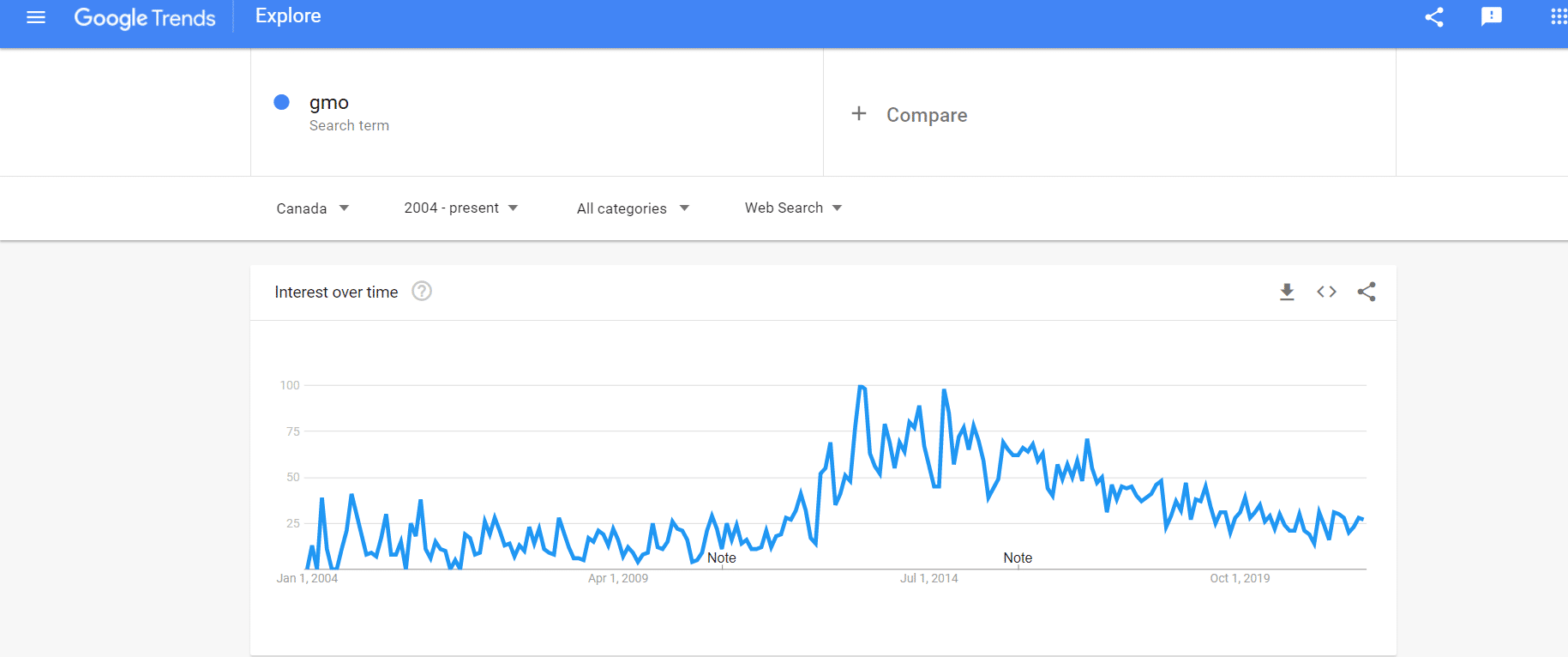Anti-GMO founding father Mark Lynas says internet trolls changed his mind

He used to, with the help of some like-minded friends and the cover of night, destroy them.
Today, this celebrated environmentalist and founding father of the anti-GMO movement says he has changed his mind about genetically modified organisms, and is facing a mountain of backlash because of it.
The British author Mark Lynas, a visiting fellow at Cornell University College of Agriculture and Life Sciences, was in Saskatoon Friday for the Canadian Science Writers Association conference and talked to the StarPhoenix about his about-face on GMOs. While scholarly papers defending GMOs are receiving more press these days, Lynas says the catalyst for his reversal was slightly more lowbrow: an internet troll.
“The moment was probably when I published my last anti-GMO piece in the Guardian newspaper in 2008 and I’d just won the Royal Society Science books prize for Six Degrees: Our future on a hotter planet,” he said. “I was enjoying being celebrated as a trusted scientific authority. And the comments under my anti-GMO article said, ‘This guy doesn’t know what the hell he’s talking about. He’s clearly not familiar with the science on the issue.’ That wounded me. So, I actually learned something from Internet comments. I realized that I had to shut up. Then I had to educate myself and start right back to basics.”
Lynas says when he dug deeper into the practicalities of feeding a world population that is projected to reach 9.6-billion by 2050, the idea of achieving that goal without technology seemed quaint and idealistic, something he blames on the blush of youth. The author says changing his mind has placed him squarely in the role of villain to the anti-GMO faithful.
“I knew at the time I didn’t believe it,” he explained. “I wrote it in an internet café. I thought: ‘God, I really need to have some sources for these things.”
“Obviously I’m demonized in their literature on the Internet. I recognize I’ve got that coming. It’s the penance I have to pay for what I’ve done in the past. I still respect people’s commitment on this issue, even if I think, ultimately, they’re damaging the interests of poorer people and environmental sustainability.”
Lynas’s reversal came early in 2013, in dramatic fashion. At the Oxford Farming Conference, he delivered a 50 minute speech that was met with what he describes as “shocked applause”.
“It was a complete demolition, not just of anti-GMO but of the whole organic thing,” Lynas told the Guardian. “For a lot of people, it was an ‘Oh fuck’ moment. They realised they’d been lied to, at a very profound level, by the very people they’d trusted.”
Lynas said the seeds of doubt about the movement had been planted in him more than a decade earlier.
“Everyone thought of themselves as being tolerant and open-minded,” he says. “But if you said something critical about them, you’d be in quite serious trouble.”
The American astrophysicist Neil de Grasse Tyson, who hosts the radio program turned TV show Star Talk, came face to face with this recently. He suggested that the anti-GMO crowd “chill out” and look at the science. He was met with predictable opposition.
“Practically every food you buy in a store for consumption by humans is genetically modified food,” said deGrasse Tyson. “There are no wild, seedless watermelons. There’s no wild cows…You list all the fruit, and all the vegetables, and ask yourself, is there a wild counterpart to this? If there is, it’s not as large, it’s not as sweet, it’s not as juicy, and it has way more seeds in it. We have systematically genetically modified all the foods, the vegetables and animals that we have eaten ever since we cultivated them. It’s called artificial selection.”
Lynas says that by the time he penned his last piece of what he called “GM Crap” he no longer believed what he was writing.
“I knew at the time I didn’t believe it,” he explained. “I wrote it in an internet café. I thought: ‘God, I really need to have some sources for these things.”
Mark Lynas and Monsanto
Since his reversal on GMOs, Lynas has gone full bore in the opposite direction. In fact, he recently penned a piece in support of Monsanto, whose popular herbicide Roundup (glyphosate) was the subject of what he called a “witch hunt” within the “natural” or “organic” communities, which repeatedly claimed Roundup was a carcinogen when none of the science actually backed that claim up.
“The glyphosate saga is a fascinating case study in how easily politics can derail science,” Lynas argued. ” In watching the glyphosate issue evolve I found myself gradually becoming more and more aghast at how quickly and thoughtlessly evidence-based policymaking was thrown away in European centers of power. I don’t want to over-hype it, but it felt a little like mob rule. You can still burn the witch in Europe if the witch is called Monsanto. Over glyphosate Monsanto was stitched up good and proper, as we say in England.”
Is the anti-GMO movement dead?
In the time since Lynas changed his mind about Genetically Modified Organisms it seems the world has a little bit too. Take this Google Trends graph of the popularity of the term. One can clearly see a spike in interest in the term prior to 2014, around the same Lynas abandoned the movement. Now it seems to be skidding back to the time when no one really Googled it.

Soon after the term “GMO” peaked in our vernacular, William Saletan penned an oft-quoted piece for Slate, in which he basically took a torch to the movement.
“The war against genetically modified organisms is full of fearmongering, errors, and fraud,” Saletan argued. “Labeling them will not make you safer.”
Saletan agreed with Lynas that the anti-GMO movement was essentially a witch hunt with little science to back it. Instead, he said, ill-informed governments were quick to fashion laws to appease consumer anxiety that had no basis in fact.
“The World Health Organization, the American Medical Association, the National Academy of Sciences, and the American Association for the Advancement of Science have all declared that there’s no good evidence GMOs are unsafe,” he said. Hundreds of studies back up that conclusion. But many of us don’t trust these assurances. We’re drawn to skeptics who say that there’s more to the story, that some studies have found risks associated with GMOs, and that Monsanto is covering it up.”
Saletan said there is no logical reason to avoid GMO food.
“The central argument of the anti-GMO movement—that prudence and caution are reasons to avoid genetically engineered, or GE, food—is a sham,” he added. “Activists who tell you to play it safe around GMOs take no such care in evaluating the alternatives. They denounce proteins in GE crops as toxic, even as they defend drugs, pesticides, and non-GMO crops that are loaded with the same proteins. They portray genetic engineering as chaotic and unpredictable, even when studies indicate that other crop improvement methods, including those favored by the same activists, are more disruptive to plant genomes.”
Do genetically modified foods save lives?
It is interesting to see the switch in public dialogue about GMOs in the short time since Mark Lynas’s mea culpa. Today, you are as likely to see articles about the positive effects of GMOs on society. One such example is that of Golden Rice, which was created by scientists Ingo Potrykus and Peter Beyer, to help approximately a quarter billion children who who subsist mostly on rice and suffer from vitamin A deficiency. Golden rice was created in the 1990s by inserting two naturally occurring genes from corn into rice. It is golden in color because it contains beta-carotene, which is a precursor to Vitamin A.
So what happened? The product was ready to go but was blocked by the political lobbying of the anti-GMO movement, something that may have costs millions of lives, if we are to believe a team of international scientists.
“Golden Rice has not been made available to those for whom it was intended in the 20 years since it was created,” says scientist and author Ed Regis. “Had it been allowed to grow in these nations, millions of lives would not have been lost to malnutrition, and millions of children would not have gone blind.”
Regis singles out GreenPeace as a major reason for the blockage of Golden Rice.
“Greenpeace opposition to Golden Rice was especially persistent, vocal, and extreme, perhaps because Golden Rice was a GM crop that had so much going for it,” he said.
Below: Mark Lynas on his conversion to supporting GMOs – Oxford Lecture on Farming
Nick Waddell
Founder of Cantech Letter
Cantech Letter founder and editor Nick Waddell has lived in five Canadian provinces and is proud of his country's often overlooked contributions to the world of science and technology. Waddell takes a regular shift on the Canadian media circuit, making appearances on CTV, CBC and BNN, and contributing to publications such as Canadian Business and Business Insider.
